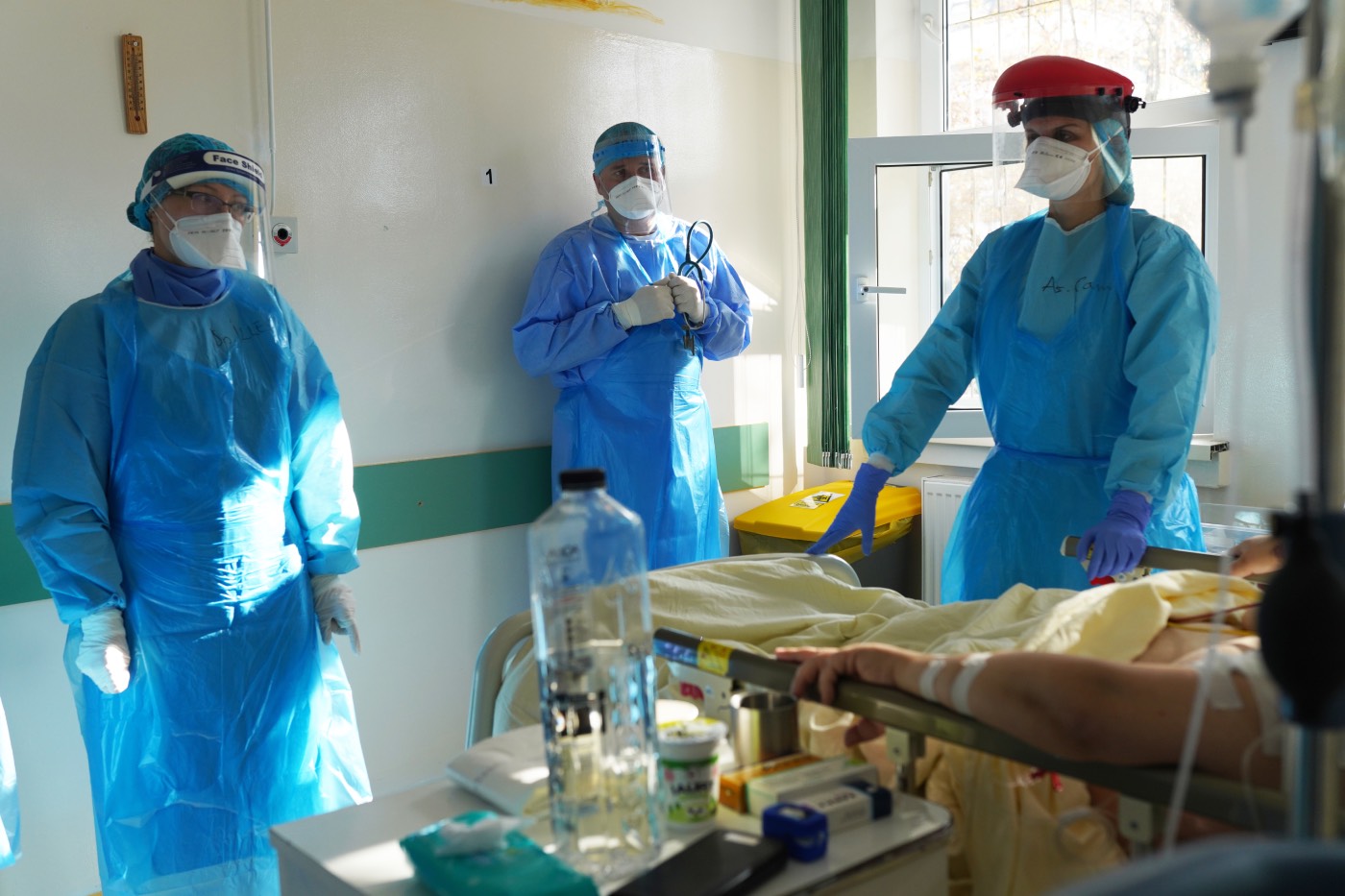Why Europe is bracing for 500,000 more Covid deaths this winter
WHO boss calls for urgent action as Germany announces record infections and Romania runs out of coffins

A free daily email with the biggest news stories of the day – and the best features from TheWeek.com
You are now subscribed
Your newsletter sign-up was successful
Europe is at “critical point” in the Covid-19 pandemic after once again becoming the “epicentre” of the global outbreak, a World Health Organization boss has warned.
Urging governments to re-impose or continue with Covid restrictions, the WHO’s Europe director, Hans Kluge, said that all of the continent’s 53 countries were facing “a real threat” of a resurgence of the virus or were “already fighting it”.
On the current trajectory, he told a press conference yesterday, the wider Europe area may be facing another half a million coronavirus deaths by the beginning of February.
The Week
Escape your echo chamber. Get the facts behind the news, plus analysis from multiple perspectives.

Sign up for The Week's Free Newsletters
From our morning news briefing to a weekly Good News Newsletter, get the best of The Week delivered directly to your inbox.
From our morning news briefing to a weekly Good News Newsletter, get the best of The Week delivered directly to your inbox.
WHO warning
Covid cases are “at near-record levels” in a string of European nations, amid “uneven vaccine coverage and a relaxation of preventive measures”, said The Guardian.
Kluge told reporters on Thursday that “with the widespread resurgence of the virus, I am asking every health authority to carefully reconsider easing or lifting of measures”.
“We must change our tactics, from reacting to surges of Covid-19, to preventing them from happening in the first place,” he said.
A free daily email with the biggest news stories of the day – and the best features from TheWeek.com
Catherine Smallwood, WHO Europe’s senior emergency officer, noted that countries that had mostly lifted preventive measures had suffered a surge in infections.
Covid vaccinations meant these nations had not seen “the same rates of hospitalisation or mortality we would have otherwise expected”, she said. But “the more cases you have in crude terms, the more people will end up in hospital, and the more people will in the end go on to die”, Smallwood added.
‘Beginning to buckle’
Countries including Germany are “in the midst of a virulent fourth wave” of Covid, said Politico. The German authorities reported 34,000 new infections of Thursday – “a new high”. In “low-vaxx Eastern Europe”, Romania and Bulgaria have also reported their highest death tolls since the beginning of the pandemic.
In Germany, hospitals are “beginning to buckle under the pressure” as intensive care beds fill up, said Deutsche Welle.
And intensive care units are already at full capacity in many hospitals in Latvia, where a health chief warned this week that doctors may soon need to “prioritise” the most at-risk patients, public broadcaster LSM reported.
In the Netherlands, the government has reintroduced tougher social restrictions after new infections increased by 5% in the week to 2 November to almost 54,000.
Gloomy outlook
Despite the steep hikes in infection rates, there is “some good news”, said Politico.
According to the news site, health experts say “the current rise in infections is different than in 2020, because infections in those who are vaccinated are in most cases not leading to serious illness, and hospitalisation rates are lower.
“That’s certainly bearing out in countries such as Germany.”
But the outlook is gloomier in Eastern European, as many countries in the region continue to shun Covid vaccines. The EU states with the lowest vaccination rates include Bulgaria, Romania, Croatia, Poland, Latvia and Estonia.
Romania had the world's highest Covid death rate per capita this week, with the virus killing one Romanian every five minutes. As the country's total death tally nears 50,000, “cemeteries and undertakers can no longer cope with the large number of dead”, with reports of coffin shortages, said EUobserver.
According to latest John Hopkins University tracking, only 33% of Romania's 20m-strong population are fully vaccinated, compared with more than 74% across the EU as a whole.